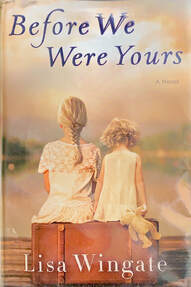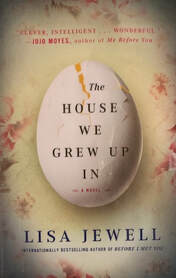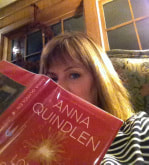|
Shanghai has experienced incredible growth since the 1940s. Maitland has shared some interesting articles to give us some context on this amazing city.
Shanghai: The Rise of the Global City Shanghai then and now: Changes through the Lens 26 years of growth: Then and Now
0 Comments
 Before We Were Yours by Lisa Wingate is based on the true story of the abuses that occurred at the Tennessee Children’s Home Society during the leadership of Georgia Tann from 1922-1950 in Memphis, Tennessee. The orphanage came to the attention of The Child Welfare League of America because of the destruction of birth records and illegal adoptions. They removed their endorsement and the Tennessee Children’s Society lost it license. It continued to operate without a license until it was shut down permanently for selling babies on the black market after a State Investigation was opened in 1950. Tann was accused of kidnapping children from desperate and poor families then selling them to the Hollywood elite for high adoption fees which she pocketed most of the money to support her extravagant lifestyle.. Even worse, some described her as a serial killer because of the number of children that died under her supervision. Her high standing and connections in Memphis society protected her from suspicion. In the end, no one was held accountable and Tann died of cancer in 1955 shortly after the investigation into her wrongdoings were underway. The novel is centered around a happy family of five children, Rill, Camellia, Lark, Fern, and Gabion living with their parents, Briny and Queenie on a boat name Arcadia. Their mother, Queenie is in labor with twins on the boat when the midwife is unable to handle the delivery and Queenie is rushed to the hospital. She and her husband are told the babies died in childbirth.. While the parents are at the hospital, their children are kidnapped and taken to the Tennessee Children's Society.. Here is an appalling conversation between Miss Tann and one of her employees, Mrs. Murphy from the book overheard by the oldest child, Rill. "Oh yes, the advertisements have already run in all the papers!" Miss Tann is saying. ' I've had such a brilliant vision, I must admit. Fair-haired cherubs for a fair summer season. Yours for the asking! Perfect, isn't it? All the little blonds.' 'Like a gathering of wood nymphs. And little elves and fairies,' Mrs. Murphy agrees. 'It is almost as compelling as the Christmas Baby Program. Customers have been calling already. Once they see the children, they'll be vying against one another." Read an article from the Los Angeles Times about a family reunited. Together Again : After 44 Tortured Years, a Mother Finds Her Stolen Child Via ‘Unsolved Mysteries’ By BEVERLY BEYETTE AUG. 20, 1990 12 AM TIMES STAFF WRITER  The House We Grew Up In by Lisa Jewell focuses on the devastating effects on a family living with a hoarder. Lorelai, the mother of 4 children, is a hoarder and she cannot help herself. She describes herself as a sixty-five-year-old woman who lives in the pretty village of Cotswolds in a “big, crazy old house full of what I call TREASURES and what my children call CRAP.” The novel centers around Lorelai who gives her perspective through email correspondences with someone she has met online. These emails provide insight and details to what she thinks and feels. The story also, alternates chapters by the present and the past. This makes it a little choppy and confusing especially in the early part of the book. Once I settled in and found the rhythm, I was hooked. I enjoyed Jewell’s descriptions of the beautiful idyllic countryside and of the dark and sad side of hoarding. I didn’t love the book, but I enjoyed it and found it interesting. I have a new understanding of how collecting and sadness when combined can spiral out of control. Here is a snippet from when Lorelai’s oldest daughter Megan confronts her mother to understand why she is living in an uninhabitable house filled floor to ceiling with stuff and barely enough space for one person to move from room to the next. When Megan sees cases of infant milk stacked in the hallway that expired 3 years ago and asks “why”. “Because buying it brought me pleasure. Because I stood in a shop and saw it and thought of my babies and your babies and your visits and imagined myself with a little Stan, or a little Alf on my lap, drinking the milk that I bought them, and I imagined you smiling and saying. ‘Thank you, Mummy, what a brilliant idea.’ And all the things I thought when I looked at the milk and bought the milk were good things. And if I throw the milk away then I’m throwing away all those good things I thought and felt when I bought it.” Megan sighed. Her mother’s view of the world was an impenetrable wall. “Empty food packaging?” “Ah, yes” – her mother smiled mischievously –” there you have a point, darling. I really do need to get on top of that…” Read more from this review by Kirkus. |

Kathy Corey
I'm an expert amateur or maybe an amateur expert. Archives
May 2021
Categories
All
|


 RSS Feed
RSS Feed
